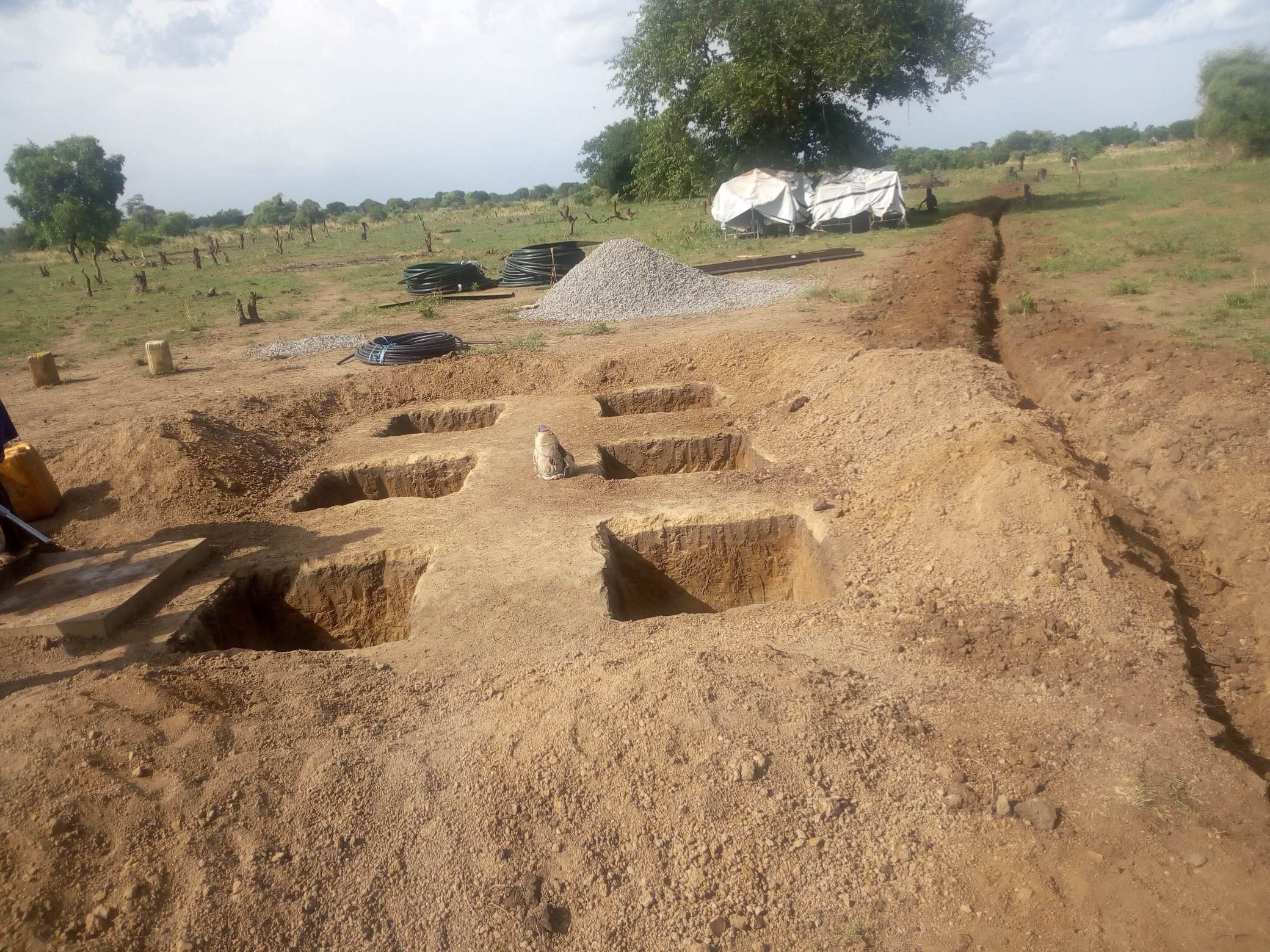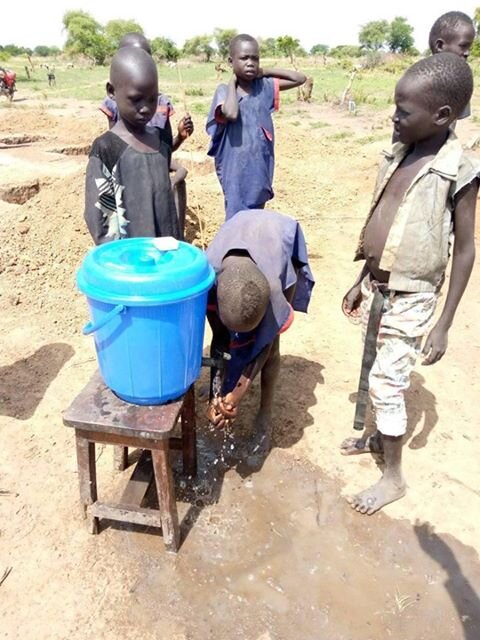Resilience Beyond the Pandemic: Solar-Powered Water System Installation Begins in Tonj
June 1, 2020, Thiet - “In most of Africa, people are more likely to die from starvation caused by the economic fallout from the pandemic than from COVID-19 itself,” wrote Gilbert Houngbo, President of the International Fund for Agricultural Development (IFAD), on May 29, 2020. In one of the most food insecure countries in the world, one community is charting a course to local resiliency, and hoping to inspire other rural communities along the way.
On May 30, our installation team arrived at our project site in Thiet, South Sudan to begin work on a solar-powered water system that harnesses the sun to provide a steady supply of water for the community to drink and to grow food locally.
COVID-19 only compounds existing challenges in South Sudan, where food shortages, climate shocks, economic crisis and chronic insecurity already leave half the population extremely food insecure. The need to enhance local capacity for food production is more urgent than ever, and it starts with reliable access to water. In this video, our project officer, Mathok Kur, shares his vision that the solar pump will enable the community to adapt to climate change and restore food security by cultivating year round, including during the dry season, rather than only depending on uncertain rainfall.
Construction on the solar water system started yesterday and is expected to be completed by the end of next week. The installation comes at a time when overcrowding at one hand pump is a heightened health risk. Once the system is installed, water will be piped closer to the surrounding communities via taps, replacing the current mechanical hand pump system.
In the meantime, in response to COVID-19, our local team has set up hand washing stations at the well and is training the community on hand washing, sanitation and hygiene. The team will continue to sensitize the community on COVID-19 prevention and the prevention of common waterborne illnesses such as diarrhea and cholera.
Both during the pandemic and beyond, access to water is the key element for community safety and security. This is why we have set up a water oversight committee comprised of women leaders from the community - to oversee the ongoing management of local water resources. In addition, our Country Director, James Wol Dut - who is a water engineer - is training local community members on water technology maintenance.
With your support, Thiet is leading the way towards a food secure and resilient post-COVID world.







